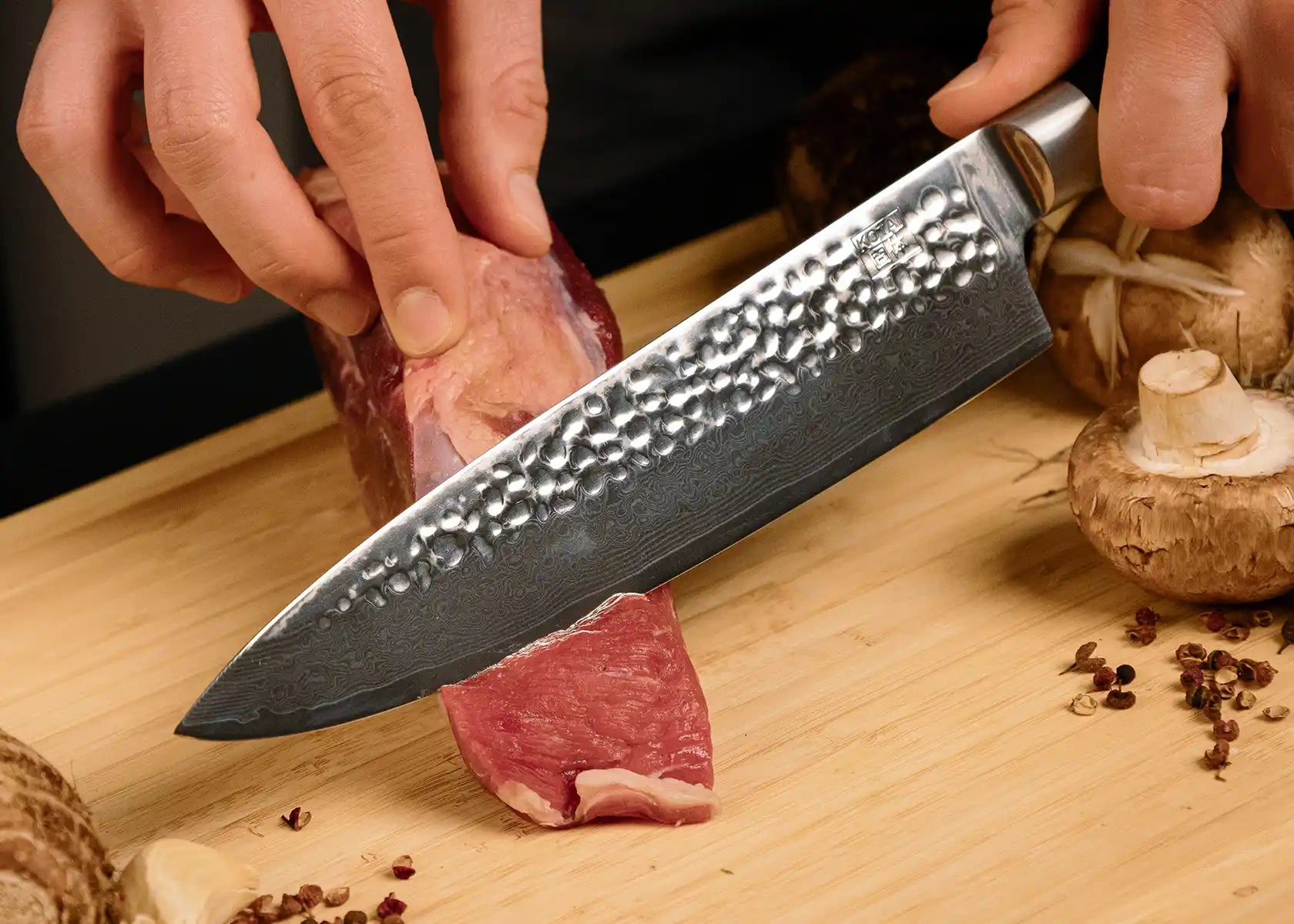In the intricate world of culinary artistry, the handmade Damascus kitchen knife stands as a testament to both historical craftsmanship and modern-day utility. Revered by professional chefs and culinary enthusiasts alike, this unique blend of beauty and function makes it indispensable in the kitchen. But what exactly makes the Damascus kitchen knife so special, especially in professional settings?
The charm of the handmade Damascus knife isn't just in its stunning aesthetic, characterized by the distinctive wavy patterns on its blade. This artistry stems from a rich history dating back centuries, reflecting a legacy of innovation and skill. Understanding the origins and creation of these knives enriches the cooking experience, making each use not just a task but a journey back in time.

History of Damascus Steel: A Legacy Forged in Fire
Rooted in ancient weaponry, the technique of crafting Damascus steel was said to be originated in the Middle East. Although the exact date of origin remains a mystery, it is often linked to the production of swords in Damascus, the capital of present-day Syria. For more detailed insights into its storied past, you can explore this history of Damascus steel. With a structure composed of multiple layers, the resultant blades not only boast incredible strength and hardness but also resist shatteringthe perfect combination for creating the sharp, resilient edges highly demanded in modern kitchens.
Over the years, artisans have carefully preserved and advanced the techniques of producing Damascus steel to craft unparalleled kitchen knives with superb cutting precision. For a more comprehensive look at what makes these knives exceptional, you might explore a detailed overview of professional Damascus knives.
Why Choose a Handmade Damascus Kitchen Knife?
Choosing a handmade Damascus kitchen knife is more than selecting a tool for the kitchen; it's an investment in precision, durability, and timeless beauty. Professional chefs appreciate these knives not only for their scalpel-like sharpness but also for their ability to maintain an edge longer than other materials like stainless steel.
Paying particular attention to techniques such as honing and sharpening ensures your Damascus knife lasts a lifetime. Professional chefs often highlight the seamless balance provided by the blade's weight and size, as it facilitates more accurate and efficient cutting techniques.
Caring for Your Damascus Knife: Tips from the Professionals
To maximize the lifespan of your knife, proper maintenance is crucial. Washing your knife by hand and drying it immediately helps prevent any potential stains or rust. Avoid hard surfaces such as granite or metal cutting boards which might damage the elegant patterns of the blade. For those looking to enhance their maintenance skills, here's a great read on best care practices for Damascus knives.
From Kitchen to Showcase: The Aesthetic Appeal
Apart from functionality, the handmade Damascus kitchen knife is often a centerpiece of conversation, admired as much for its function as its form. Chefs and collectors alike rejoice in their fine, intricate patterns which lend a sense of elegance and authenticity to any kitchen setting. These knives can even serve as unique gifts for culinary professionals, offering a touch of luxury and personalization.
The art of creating such a knife combines careful selection of metals, meticulous craftsmanship, and sometimes even personalized engraving. If you're curious about the intricate designs possible with these knives, this detailed discussion on Damascus knife sets might be of interest.
Authenticity and Imitations: Differentiating the Two
In a market flooded with replicas, understanding the difference between authentic Damascus steel and its imitations is key. True Damascus steel will alter its pattern as different angles catch light, unlike etched or laser-patterned fakes. To bolster your understanding, this article on authentic Damascus sets provides greater insight.

FAQs About the Handmade Damascus Kitchen Knife
What sets a Damascus knife apart from other knives?
The unique combination of audacious patterns, extraordinary sharpness, and durability sets Damascus steel apart from other materials, offering unparalleled performance and aesthetic value.
How do I maintain the edge of my Damascus knife?
Regular honing and the occasional professional sharpening will keep your knife razor-sharp. Ensure you use suitable honing rods and sharpening stones.
Is a handmade Damascus kitchen knife worth the investment for chefs?
Absolutely. For any serious chef, the longevity, precision, and visual appeal alone justify the investment, adding both functional and aesthetic value to any professional kitchen.
This article contains affiliate links. We may earn a commission at no extra cost to you.


























